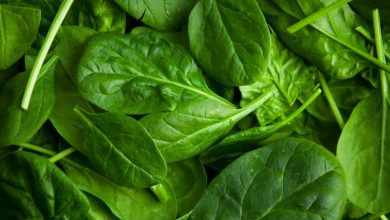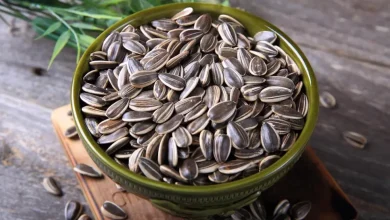Eat Healthy and Nutrients Food | 15 Eating Tips
Eat Healthy and Nutrients Food | 15 Eating Tips
Healthy and Nutritional Tips
Healthy and Nutritional Tips:- Maintaining a healthy lifestyle is essential for overall well-being and reducing the risk of many health problems. A nutritious diet, regular physical activity, adequate sleep, and stress management are all important components of a healthy lifestyle. However, with so much information available about health and nutrition, it can be overwhelming to know where to start. In this context, we have compiled 15 healthy and nutritional tips that can help you to establish and maintain healthy habits. By incorporating these tips into your daily routine, you can promote overall health and well-being, and reduce the risk of many health problems.
Related:- Natural Glow for Skin-Top Homemade Remedies
Eat a Variety of Nutrient-Dense Foods
Healthy and Nutritional Tips:- Eating a variety of nutrient-dense foods is important for maintaining optimal health and wellness. Nutrient-dense foods are foods that provide a high amount of nutrients relative to their calorie content. These foods are rich in vitamins, minerals, fiber, and other important nutrients that are essential for good health.
When you eat a variety of nutrient-dense foods, you ensure that your body is getting all the nutrients it needs to function properly. This can help improve your energy levels, support your immune system, and reduce your risk of chronic diseases such as heart disease, diabetes, and cancer.
Incorporating a variety of colorful fruits and vegetables into your diet can provide a range of nutrients, such as vitamins A, C, and K, as well as antioxidants that help protect your cells from damage. Whole grains like brown rice, quinoa, and oats are high in fiber and important B vitamins, while lean proteins like chicken, fish, and legumes provide essential amino acids for building and repairing tissues in the body.

Healthy fats such as those found in nuts, seeds, and avocados are important for brain function and hormone production. Drinking plenty of water and staying hydrated is also crucial for supporting bodily functions such as digestion and regulating body temperature.
Cut Down on Processed Foods
Healthy and Nutritional Tips:- Cutting down on processed foods is important for maintaining optimal health and wellness. Processed foods are those that have been altered in some way from their natural state, often through the addition of preservatives, flavorings, and other artificial ingredients. These foods tend to be high in calories, unhealthy fats, sugar, and salt, while being low in important nutrients such as fiber, vitamins, and minerals.
Consuming a diet high in processed foods has been linked to an increased risk of obesity, type 2 diabetes, heart disease, and other chronic illnesses. This is because these foods tend to be high in calories but low in satiety, meaning they don’t leave you feeling full for very long and can lead to overeating.

Limit Your Intake of Sugar and Salt
Healthy and Nutritional Tips:- Limiting your intake of sugar and salt is important for maintaining optimal health and wellness. Both sugar and salt are important components of our diet, but excessive consumption can have negative effects on our health.
Excess sugar consumption has been linked to a range of health problems, including obesity, type 2 diabetes, and heart disease. Consuming large amounts of sugar can also lead to inflammation, which has been linked to a number of chronic diseases.
To reduce your intake of sugar, it is important to read food labels and be aware of the amount of added sugars in the foods you consume. Added sugars can be found in many processed foods, including baked goods, cereals, and soft drinks. Opt for whole, nutrient-dense foods like fruits and vegetables instead of sugary snacks and drinks.
Similarly, excessive salt intake can contribute to high blood pressure, heart disease, and stroke. Salt is often added to processed foods as a preservative, and many people consume much more salt than they need through their diet.
To reduce your intake of salt, avoid adding salt to your meals, and choose low-sodium alternatives to processed foods when possible. Instead, flavor your food with herbs and spices or a squeeze of lemon juice.
Choose Healthy Fats
Healthy and Nutritional Tips:- Choosing healthy fats is important for maintaining optimal health and wellness. Fats are a vital nutrient that the body needs to function properly, but not all fats are created equal. Some types of fats, like trans fats and saturated fats, can increase the risk of heart disease and other health problems, while other types of fats, like monounsaturated and polyunsaturated fats, can be beneficial to our health.
Monounsaturated and polyunsaturated fats are considered healthy fats because they can help improve cholesterol levels, reduce inflammation, and lower the risk of heart disease. These fats can be found in foods like nuts, seeds, avocados, fatty fish, and vegetable oils like olive and canola oil.

Trans fats and saturated fats, on the other hand, can increase cholesterol levels and contribute to the development of heart disease. These types of fats are often found in processed foods, fried foods, and fatty meats. It is important to limit your intake of these unhealthy fats and replace them with healthier fats in your diet.
Watch Your Portion Sizes
Healthy and Nutritional Tips:- Watching your portion sizes is an important aspect of maintaining a healthy diet and managing your weight. Overeating can lead to weight gain, which can increase the risk of a range of health problems, including heart disease, diabetes, and certain types of cancer.
It can be easy to eat more than your body needs, especially when dining out or eating packaged foods with large serving sizes. Learning to control your portions and eat until you are satisfied, rather than full, can help you maintain a healthy weight and support your overall health.
Eat Mindfully
Healthy and Nutritional Tips:- Eating mindfully is an important aspect of maintaining a healthy diet and supporting your overall health and wellness. Mindful eating involves paying attention to your food and your body’s signals of hunger and fullness, as well as being present and fully engaged in the act of eating.
One key aspect of mindful eating is to eat slowly and savor your food. This can help you better appreciate the flavors and textures of your food, as well as make it easier to recognize when you are feeling full.
Another important aspect of mindful eating is to avoid distractions while eating, such as watching TV or scrolling through your phone. When you are distracted, you may not pay as much attention to your food or how much you are eating, which can lead to overeating and other unhealthy habits.
Plan your Meals
Healthy and Nutritional Tips:- Meal planning is an important aspect of maintaining a healthy diet and lifestyle. Planning your meals in advance can help you make healthier food choices, save time and money, and reduce the likelihood of resorting to unhealthy fast food or convenience foods when you’re short on time.
One of the key benefits of meal planning is that it allows you to choose healthier, more nutritious foods for your meals. By planning out your meals in advance, you can make sure you’re getting a variety of nutrient-dense foods like fruits, vegetables, whole grains, and lean proteins, while avoiding processed foods and excessive amounts of sugar and unhealthy fats.
Get Enough Protein
Healthy and Nutritional Tips:- Getting enough protein is important for maintaining a healthy diet and supporting overall health and wellness. Protein is essential for building and repairing tissues in the body, including muscles, bones, and skin. It is also important for maintaining healthy immune function, and for producing hormones and enzymes that help regulate various bodily functions.
The recommended daily intake of protein varies depending on factors such as age, gender, and activity level, but in general, adults should aim to consume 0.8 grams of protein per kilogram of body weight per day. However, this amount may increase for individuals who are physically active or who are trying to build muscle mass.
Sources of protein include animal-based foods such as meat, poultry, fish, eggs, and dairy products, as well as plant-based foods like beans, lentils, nuts, and seeds. It’s important to choose high-quality sources of protein that are also low in saturated fat and added sugars.
Avoid Smoking and Excessive Alcohol Consumption
Healthy and Nutritional Tips:- Avoiding smoking and excessive alcohol consumption are both important for maintaining a healthy lifestyle and reducing the risk of many health problems.
Smoking is one of the leading causes of preventable death worldwide and is associated with numerous health risks, including lung cancer, heart disease, stroke, and respiratory infections. Quitting smoking is one of the best things you can do for your health, and can significantly reduce your risk of developing these and other smoking-related health problems.
Excessive alcohol consumption is also associated with numerous health risks, including liver disease, high blood pressure, certain types of cancer, and mental health problems like depression and anxiety. To reduce the risk of these health problems, it’s recommended that women limit their alcohol consumption to one drink per day, and men limit their alcohol consumption to two drinks per day.
Manage Stress
Healthy and Nutritional Tips:- Stress is a natural part of life and can be caused by a variety of factors, such as work, relationships, finances, or health problems. While some stress can be motivating and help you perform better, chronic or excessive stress can have negative effects on both your physical and mental health.
Managing stress is important for maintaining a healthy lifestyle and reducing the risk of health problems like high blood pressure, heart disease, depression, and anxiety.
Here are some tips for managing stress:
- Exercise: Regular physical activity can help reduce stress and improve mood by releasing endorphins in the body.
- Practice relaxation techniques: Techniques like deep breathing, meditation, and yoga can help reduce stress and promote relaxation.
- Get enough sleep: Getting enough sleep is important for managing stress and maintaining overall health.
- Prioritize self-care: Taking time for yourself to do things you enjoy can help reduce stress and improve overall well-being.
- Manage your time: Effective time management can help reduce stress by allowing you to prioritize important tasks and avoid feeling overwhelmed.
- Seek support: Talking to a trusted friend, family member, or healthcare professional can help you manage stress and develop coping strategies.
- Avoid unhealthy coping mechanisms: Avoid using drugs, alcohol, or other unhealthy coping mechanisms to deal with stress, as these can have negative effects on both physical and mental health.
Move your Body
Healthy and Nutritional Tips:- Regular physical activity is important for maintaining a healthy lifestyle and reducing the risk of many health problems. Exercise can help improve cardiovascular health, maintain a healthy weight, reduce the risk of chronic diseases like diabetes and

Some types of cancer, and improve mental health and mood.
There are many different types of physical activity that can be beneficial, including aerobic exercise, strength training, flexibility exercises, and activities that promote balance and coordination. It’s recommended that adults aim for at least 150 minutes of moderate-intensity aerobic exercise, or 75 minutes of vigorous-intensity aerobic exercise, per week, in addition to muscle-strengthening activities at least two days per week.





